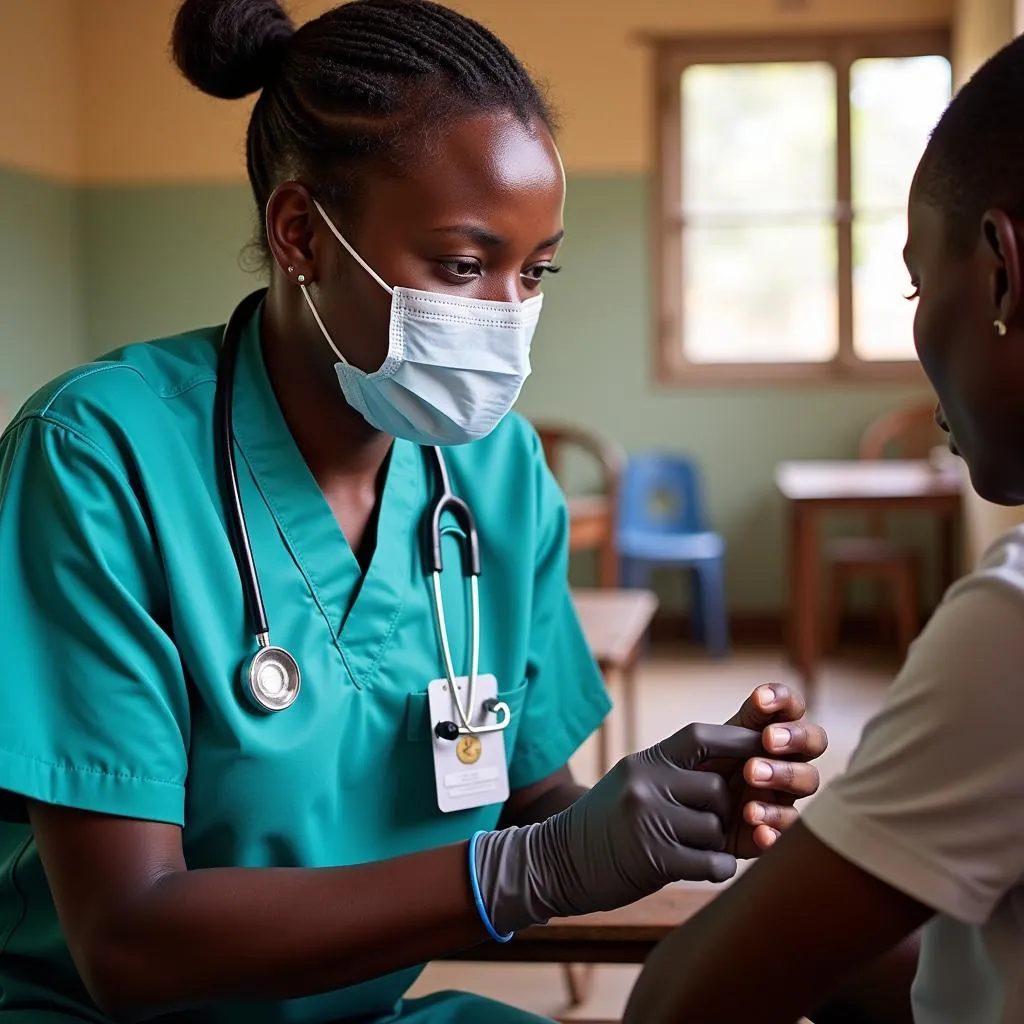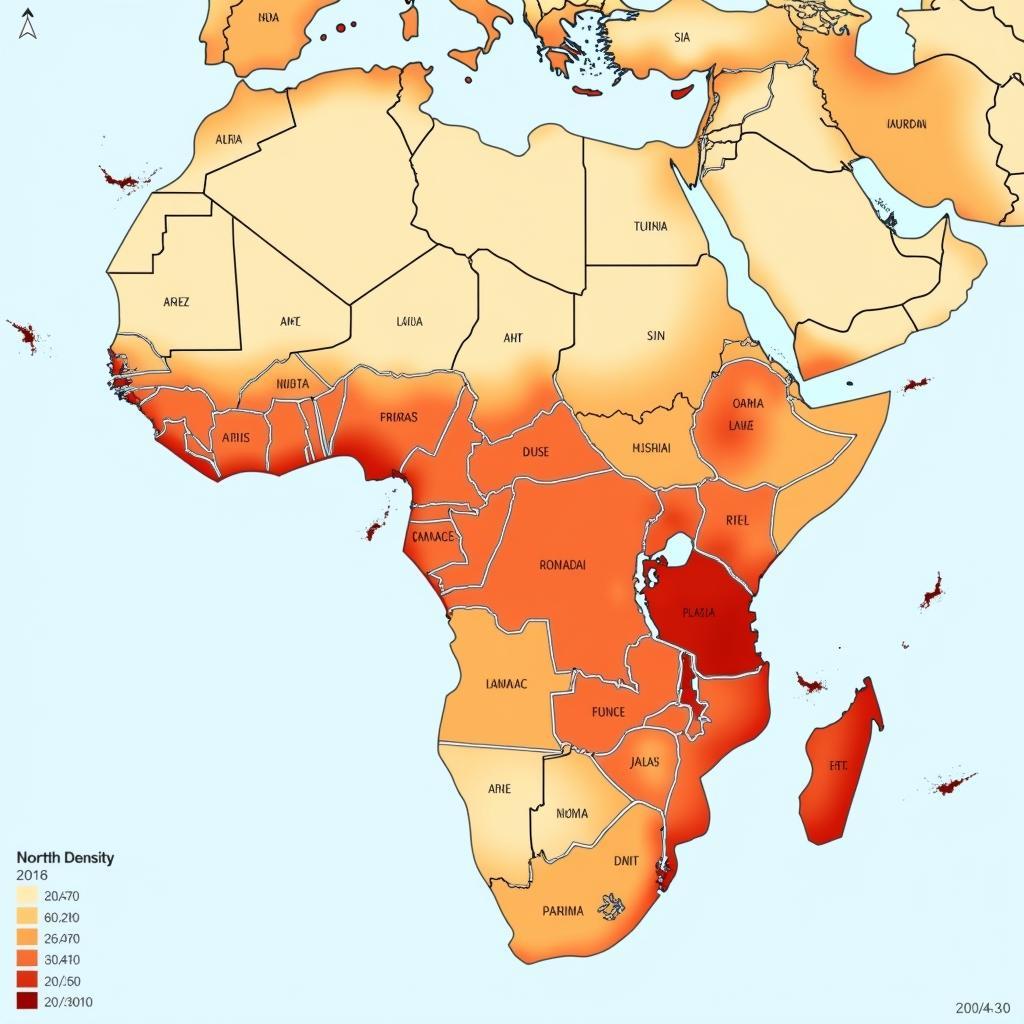Understanding African Fever Types
African Fever Types encompass a diverse range of illnesses caused by various pathogens prevalent in different regions of Africa. These fevers can range from mild, self-limiting conditions to severe, life-threatening diseases. Understanding the causes, symptoms, and preventive measures associated with these fevers is crucial for travelers and healthcare providers alike.
Common African Fever Types and Their Causes
Several fevers are commonly associated with Africa, each with distinct causative agents:
- Malaria: This parasitic disease, transmitted through mosquito bites, is caused by Plasmodium parasites.
- Typhoid fever: Spread through contaminated food and water, typhoid fever is caused by the bacterium Salmonella Typhi.
- Dengue fever: This viral infection is transmitted through the bite of infected Aedes mosquitoes.
- Yellow fever: A viral hemorrhagic fever transmitted by infected Aedes and Haemogogus mosquitoes.
- Lassa fever: Caused by the Lassa virus, this acute viral illness is spread through contact with infected rodents or their excreta.
- Ebola Virus Disease and Marburg Virus Disease: These severe, often fatal illnesses are caused by viruses and are characterized by fever, fatigue, muscle pain, and bleeding.
- Rift Valley fever: Transmitted by mosquitoes and contact with infected animal tissues, Rift Valley fever is a viral disease affecting both humans and animals.
Recognizing the Symptoms
African fever types often share common symptoms, making diagnosis challenging. These shared symptoms can include:
- Fever: A hallmark of most fevers, it can range from low-grade to very high.
- Headache: A common symptom accompanying fever.
- Muscle aches and joint pain: These generalized aches and pains are common to many febrile illnesses.
- Fatigue and Weakness: Feeling tired and weak is a common response to infection.
- Loss of appetite: A reduced desire to eat can accompany many infections.
- Nausea and Vomiting: These symptoms can indicate a more serious illness.
However, some fevers have unique symptoms that can aid in their identification:
- Malaria: Characterized by cyclical bouts of fever, chills, sweating, and headache.
- Typhoid fever: May present with a slow heart rate, abdominal pain, and a rose-colored rash.
- Dengue fever: Often causes severe joint pain (breakbone fever), headache, and a rash.
- Yellow fever: Can cause jaundice (yellowing of the skin and eyes), abdominal pain, and bleeding.
- Lassa fever: May lead to facial swelling, difficulty breathing, and bleeding from the mouth, nose, or ears.
 African Healthcare Worker
African Healthcare Worker
Preventing African Fever Types
Taking preventive measures is crucial for reducing the risk of contracting African fever types. Some effective strategies include:
- Vaccinations: Vaccinations are available for diseases like yellow fever, typhoid, and meningococcal meningitis. Consult a travel medicine specialist for recommendations.
- Mosquito bite prevention: Use insect repellent containing DEET, wear long-sleeved clothing, and sleep under mosquito nets, especially in malaria-prone areas.
- Food and water safety: Consume only bottled or boiled water and avoid raw or undercooked food.
- Hand hygiene: Wash hands frequently with soap and water or use hand sanitizer.
- Avoiding contact with rodents: Keep living areas clean and store food in rodent-proof containers to prevent Lassa fever.
- Seeking immediate medical attention: If you develop a fever or any other symptoms while in Africa or after returning from the region, seek immediate medical attention.
African Fever Types: Addressing Common Questions
What is the most common fever in Africa?
While various fevers occur in Africa, malaria is the most common, particularly in sub-Saharan Africa.
What should I do if I think I have an African fever?
If you suspect you might have contracted an African fever, seek immediate medical attention. Early diagnosis and treatment are vital for better outcomes.
Exploring Further
For more information on specific African fever types, visit the following resources:
Need Assistance?
Understanding African fever types and taking appropriate preventive measures are crucial for anyone traveling to or residing in Africa. Remember, if you experience any symptoms of fever, seek immediate medical attention. For personalized travel advice and health recommendations, consult a qualified healthcare professional or travel medicine specialist.
For any queries or assistance, please feel free to contact us:
- Phone Number: +255768904061
- Email: kaka.mag@gmail.com
- Address: Mbarali DC Mawindi, Kangaga, Tanzania.
We are available 24/7 to assist you.




